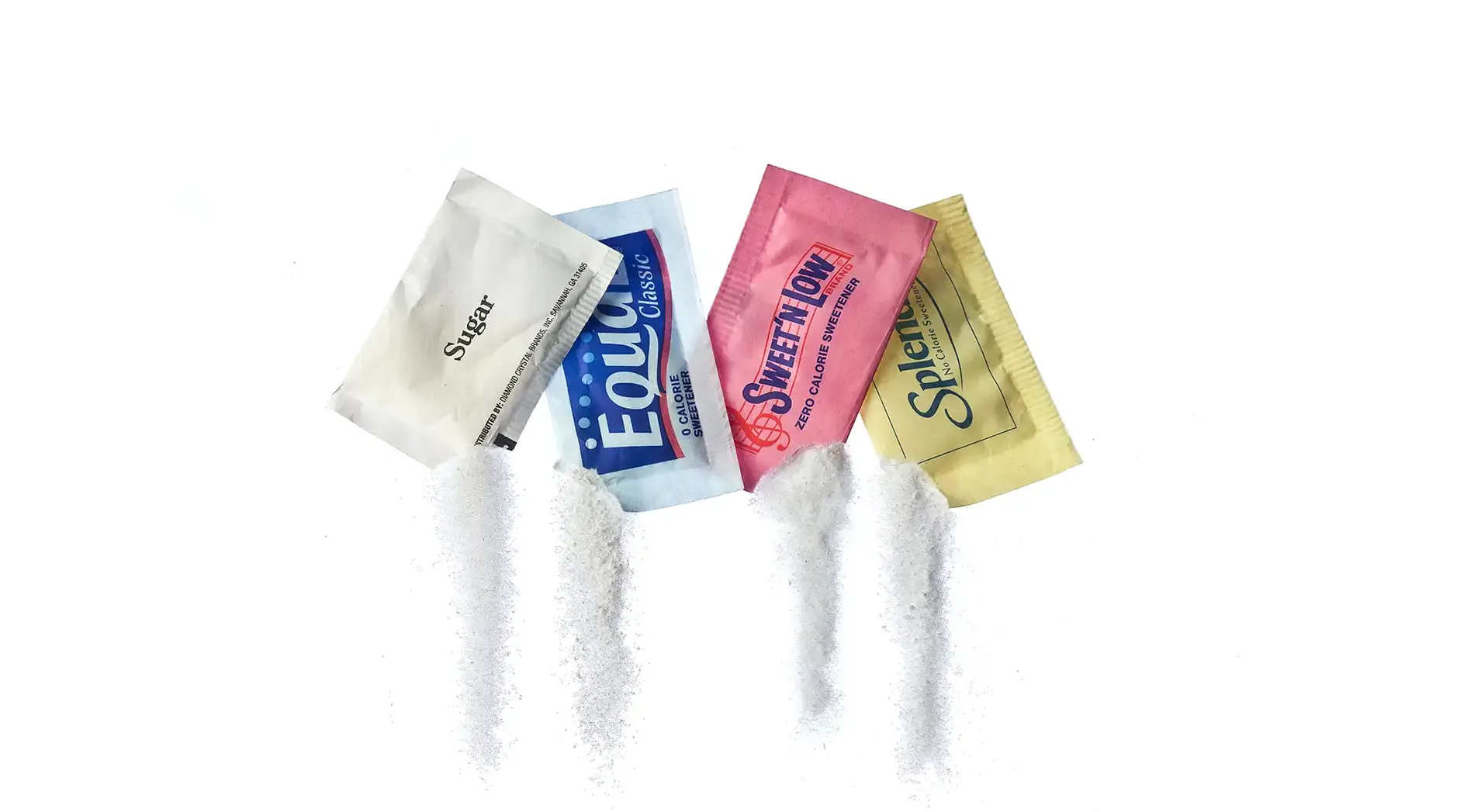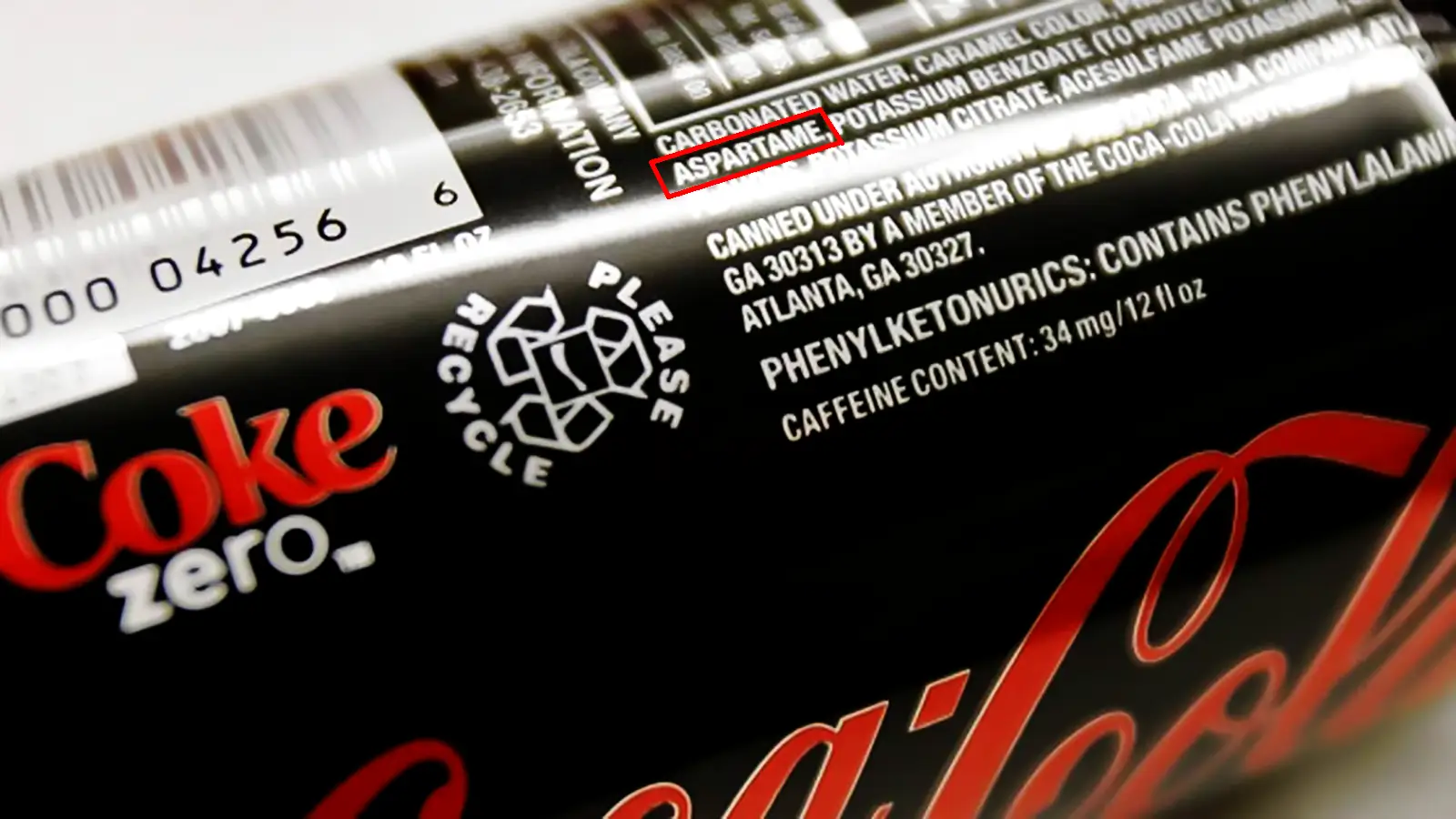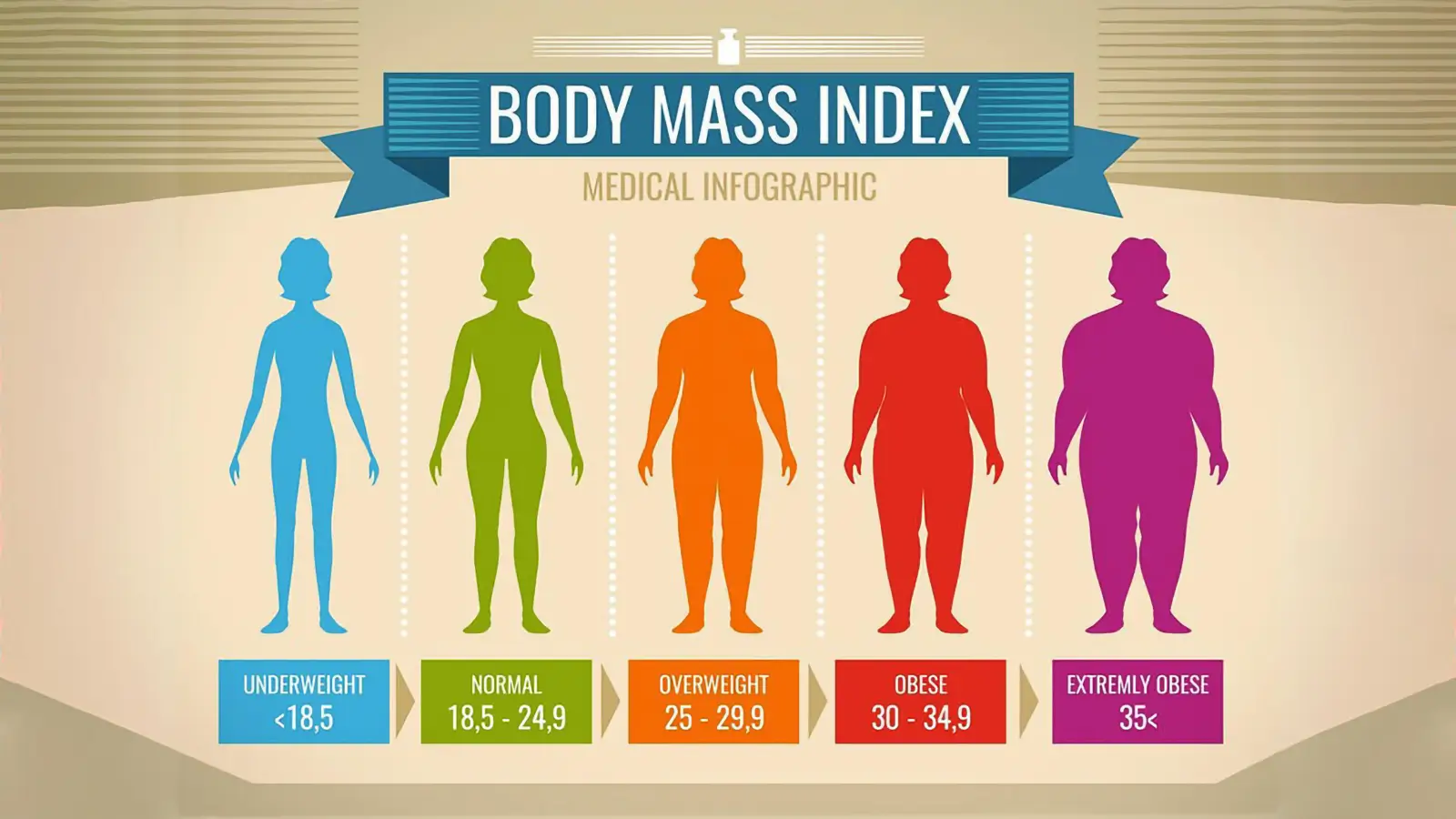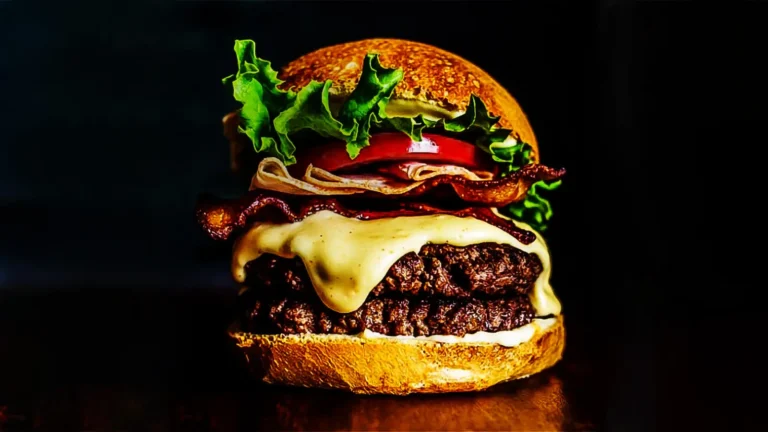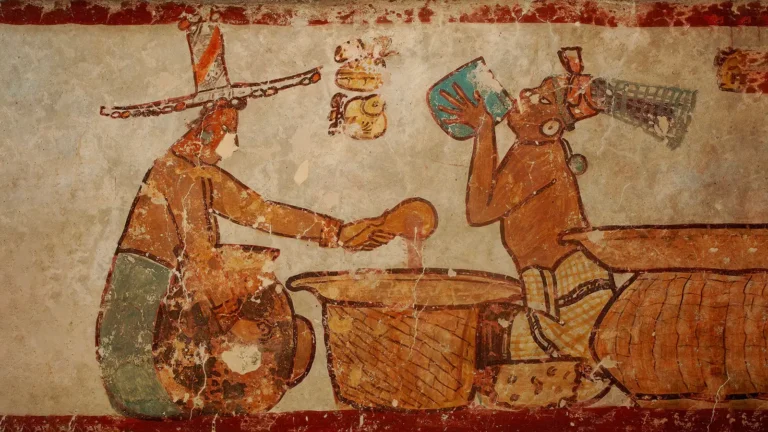Supernormal Stimuli- Trastorno Por Atracón y Regulación del Apetito
Cuando vemos una hamburguesa, es un estímulo supernormal. Los impulsos primarios afectan a nuestro comportamiento forzándonos al trastorno por atracón.
Milos Pokimica
Escrito por: Milos Pokimica
Revisado Médicamente Por: Dr. Xiùying Wáng, M.D.
Actualizado el 4 de agosto de 2023Cuando vemos una hamburguesa, es un estímulo supernormal, o cuando vemos cualquier alimento que no existe en esa forma en la naturaleza especialmente si combina cualquier forma de grasa y carbohidratos o azúcar regular juntos es un estímulo supernormal. Los impulsos o instintos primarios afectan a nuestro comportamiento y a nuestro cerebro reptiliano y básicamente nos controlan más de lo que nos gustaría admitir forzándonos al trastorno por atracón.
Los alimentos extremadamente dulces o grasos que tenemos hoy en día, pero que no estaban presentes en la naturaleza, cautivan el circuito de recompensa del cerebro de forma muy parecida a como lo hacen la cocaína y el juego. Incluso el mero hecho de ver la comida desencadena la respuesta del cerebro. Tan pronto como el alimento llega a la lengua, las papilas gustativas envían señales a distintas zonas del cerebro. El resultado será una respuesta que desencadenará la liberación del neuroquímico dopamina. Comer en exceso con frecuencia alimentos muy apetitosos satura el cerebelo con una cantidad significativa de dopamina que obliga al cerebro a ajustarse en última instancia desensibilizándose, disminuyendo el número de receptores celulares que identifican y responden al neuroquímico. Un nivel elevado y constante de dopamina es la forma de estímulo sobreexcesivo, algo que se denomina estímulo supernormal.
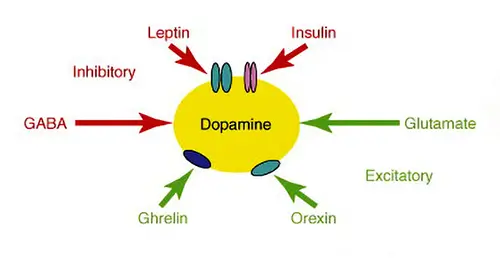
También hay un problema de condicionamiento. Cuando pasas años trabajando para conseguir ese ascenso o pasas años en la universidad y por fin consigues ese trabajo o ese diploma te sientes muy bien. Lleva tiempo y esfuerzo. Pero cuando vas a la nevera y abres una bolsa de patatas fritas también te sientes genial. Sin embargo, hay un problema. En la naturaleza, tendríamos que esforzarnos mucho para conseguir ese bocado, y no estaba salado ni lleno de grasa y azúcar. Por otra parte, cuando queríamos encontrar pareja, teníamos que ser capaces de luchar contra otros machos. Tendríamos que trabajar duro para obtener cualquier recompensa. Nos llevaría mucho tiempo y esfuerzo.
Sin embargo, en la era moderna, no supone ningún esfuerzo. Una llamada telefónica a la pizzería y ya está. Instantáneamente podemos recompensarnos con placer sin necesidad de tiempo ni esfuerzo. Además, existen las drogas, las películas, los videojuegos, el alcohol y el juego. Todas estas cosas son formas de gratificación instantánea. Son muy fáciles de obtener y proporcionan breves ráfagas de placer. Este condicionamiento altera nuestra percepción y reconfigura nuestros centros de recompensa en el cerebro. Los estimulantes ambientales modernos pueden activar respuestas instintivas que evolucionaron antes del mundo moderno. Cuando podemos obtener una estimulación supernormal todo el tiempo sin esfuerzo, nuestro cerebro regula a la baja los receptores, y tenemos un problema, necesitamos más. Además, cuando obtenemos más, el cerebro regula a la baja los receptores un poco más, y volvemos a necesitar más. Se convierte en un comportamiento adictivo antes de que tengamos una sobredosis.
En el libro, Tierra baldía: La ciencia (r)evolutiva detrás de nuestra crisis de peso y forma física, la psicóloga de Harvard Deirdre Barrett analizó muy bien cómo la comida basura provoca estímulos exagerados a los antojos naturales de sal, azúcar y grasas. La cuestión es que la mayoría de la gente normal no es psicóloga y no puede detectar esto en su propio comportamiento.
Los estímulos supernormales también existen en la naturaleza. Cuando los científicos aíslan los rasgos que pueden desencadenar ciertos instintos, como colores o formas o patrones, y luego los aplican a los animales, éstos se comportan de forma extremadamente instintiva y fuera del comportamiento normal. Los instintos no tienen límites. Una vez que los investigadores aíslan el desencadenante instintivo, pueden crear maniquíes muy exagerados que los animales elegirían en lugar de la alternativa realista. Por ejemplo, al ver peces espinosos machos rojos ignorarían a los rivales reales y atacarían réplicas de madera con el vientre pintado de vivos colores, e incluso reaccionarían agresivamente cuando la furgoneta roja de correos pasara por la ventana del laboratorio. Los pájaros cantores abandonarían sus huevos de color azul pálido moteado de gris y se sentarían en maniquíes de color azul fluorescente con lunares negros tan grandes que se resbalarían continuamente. Preferirían alimentar a falsas crías de pájaro con bocas más llenas y rojas que las reales y las crías ignorarían a sus padres para pedir comida a picos falsos con marcas más dramáticas.
Es fácil suponer que este tipo de comportamientos reflejan algún error o manipulación, pero está muy lejos de la realidad. Lo cierto es que se trata de una acción totalmente justificable desde el punto de vista evolutivo y que contribuirá a la supervivencia de la especie. El huevo grande y colorido es un símbolo de salud para un ave, por lo que su instinto es correcto y está condicionado para obligarla a dedicar más tiempo a ir a sentarse sobre un huevo negro con lunares porque ese huevo tiene más posibilidades de éxito en la eclosión. En la naturaleza no hay errores, sólo en la interpretación humana de la naturaleza.
Las aves nunca estarán expuestas a la tecnología, por lo que los estímulos supernormales son un condicionamiento positivo para la supervivencia de la especie. En un entorno moderno impulsado por la tecnología, la historia es diferente. No nos hemos adaptado adecuadamente en el sentido evolutivo a nuestro entorno moderno, y las consecuencias son terribles.
Por ejemplo, la obesidad es una epidemia, y no sólo la obesidad, sino también la mayoría de nuestros otros problemas de salud. Todas las llamadas enfermedades de la opulencia son, en esencia, desadaptaciones fisiológicas. ¿Por qué? Porque las acciones de búsqueda de placer en todas sus formas impulsan la mayor parte de nuestro comportamiento. Nos hará comer incluso cuando no tengamos hambre en busca de placer y satisfacción. Hará que nuestro cerebro se sobreestimule de todas las formas y maneras posibles que se nos ocurran. El problema es significativo a escala poblacional y puede agravarse aún más en individuos específicos que tienen niveles de receptores de dopamina menos expresados. Puede hacerlos susceptibles a comportamientos compulsivos.
Nuestra fisiología no está adaptada para ser bombardeada continuamente con estímulos supernormales, para tener gratificación instantánea en todas las formas, para no sentir nunca hambre, para no tener que hacer nunca ninguna actividad física y para tener un flujo interminable de productos animales, azúcar y grasa. Actuamos impulsiva, emocional e instintivamente como la mayoría de los animales porque estamos condicionados a hacerlo para sobrevivir. Nos guste o no, al final esto tendrá consecuencias duraderas para la salud.
La dependencia psicofísica de estímulos supernormales es real. El ser humano está evolutivamente condicionado para la alimentación extrema debido a la escasez en la naturaleza.
Para todos los animales que existen en la naturaleza, el hambre es el estado normal del ser. Alternativamente, una lucha constante por la comida sería más preciso. Para todos los animales que viven en este planeta, la obsesión por la comida es un trabajo diurno. La mayor parte del tiempo de su vida los animales lo pasan buscando comida. No hay supermercados ni latas de comida preparada. Es la lucha. Además, esa era una condición normal para los humanos incluso hoy en día. Bueno, al menos en la parte de la fisiología corporal.
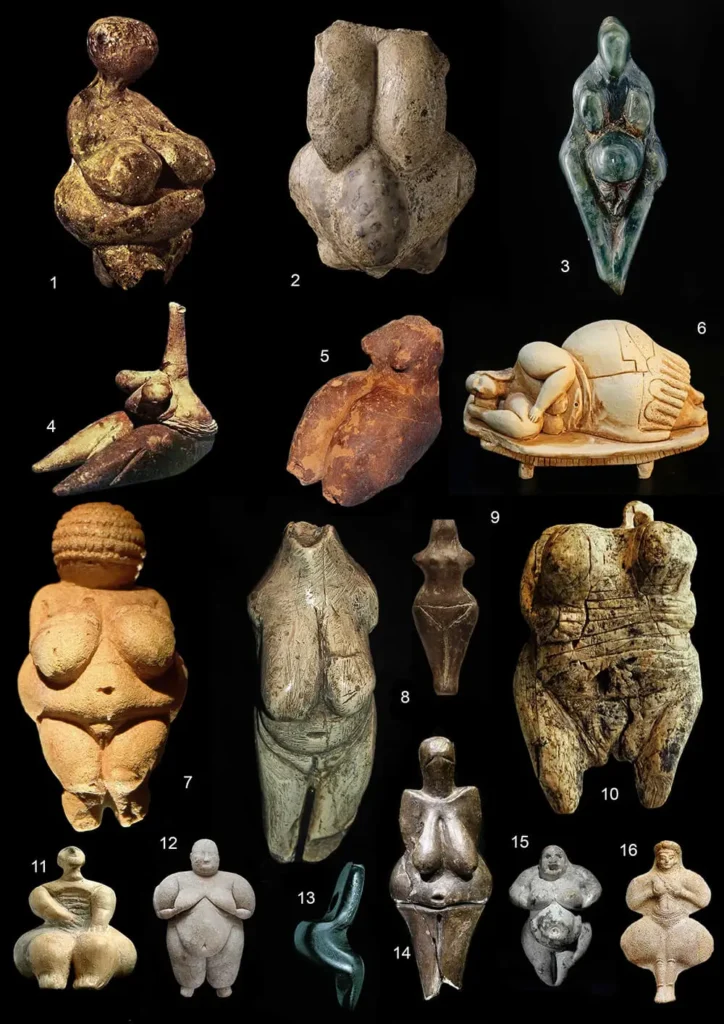
1. Venus de Gagarino, Rusia, 20.000 a.C.; 2. Figurine féminine dite manche de poignard de Brassempouy, 23.000 a.C.; 3. Venus de Losange, Italia, 25.000 a.C.; 4. Venus de Tepe Sarab, Irán, 65.000 a.C.; 5. "Ídolo" neolítico de princesa Hassuna, 65.000-5.700 a.C. Mesopotamia; 6. Venus de Malta, 45.000 a.C.; 7. Venus de Willendorf, Austria, 24.000 a.C.; 8. Venus de Moravany, Eslovaquia, 23.000 a.C. 8. Venus de Moravany, Eslovaquia, 23.000 a.C. 9. Figurilla de cerámica de una mujer, 5.300 a.C., Museo Británico 10. Venus de Hohle Fels, Alemania, 38.000 a.C. 11. Cueva Ghar Dalam, Malta, 5.400 a.C. 12. Catalhohuk, 6.000 a.C. 13. Venus de Monruz, Suiza, 10.000 a.C. 14. Venus de Dolní Vestonice, República Checa, 29.000 a.C. 15. Venus de Anatolia, Turquía, 5.000 a.C. 15. Venus de Anatolia, Turquía, 6.000 a.C. Inanna (Ishtar) Diosa Madre, Mesopotamia 2000 a.C.
Nuestro deseo y comportamiento de búsqueda de placer es lo que nos enferma. La evolución no predijo la electricidad ni los microchips ni los coches. Estamos mal adaptados a nuestro hábitat. Hemos subrayado mecanismos que nos obligan a actuar de forma evolutivamente protectora, como comer comida en exceso. El obstáculo no tan único ahora es que ya no hay escasez. Además, lo que es peor, comemos cosas como carne que no son congruentes con nuestra fisiología. Y lo que es peor, lo comemos en cada comida. Y lo que es aún peor, estamos rodeados de todos los productos químicos tóxicos con los que nunca tuvimos que lidiar en el pasado, y ya no hacemos ejercicio ni nos movemos, y no tenemos suficiente luz solar, y no tenemos relaciones normales con otras especies y otros seres humanos. Dependemos de la tecnología, estamos atrofiados y envenenados. Dependemos de nuestra comida para que sean estímulos supernormales y de todo lo que nos rodea para que sean estímulos supernormales. Lo supernormal es la nueva normalidad. Ahora todo tiene que ser supernormal para ser normal. Desde los videojuegos hasta las películas, pasando por las drogas, la adicción a los juegos, la adicción al porno y el sexo y la violencia en cada fotograma. Comer col rizada ya no es para nosotros. Comer fruta ya no es para nosotros. La fruta era antaño el mayor capricho que podíamos encontrar en la naturaleza. El postre supremo. ¿Qué es hoy la fruta? El híbrido derivado de la cría selectiva para ser más dulce. ¿Habíamos probado alguna vez en nuestra vida la auténtica fruta silvestre sin genes alterados? Incluso esa variedad excesivamente hibridizada no es rival para el azúcar refinado puro, así que vamos a beber agua azucarada coloreada como la Coca-Cola y los refrescos. azúcar refinadoasí que vamos a beber agua azucarada coloreada como la Coca-Cola y los refrescos.
Referencias:
Pasajes seleccionados de un libro: Pokimica, Milos. Go Vegan? Examen de Ciencias de la Parte 1. Kindle ed., Amazon, 2018.
Contenidos Relacionados
¿Tienes alguna duda acerca de la nutrición y la salud?
Me encantaría saber de usted y responderlas en mi próxima publicación. Agradezco sus aportes y opiniones y espero tener noticias suyas pronto. También te invito a síguenos en Facebook, Instagram y Pinterest para más contenidos sobre dieta, nutrición y salud. Puedes dejar un comentario allí y conectar con otros entusiastas de la salud, compartir tus consejos y experiencias, y recibir apoyo y ánimo de nuestro equipo y nuestra comunidad.
Espero que este post le haya resultado informativo y ameno y que esté preparado para aplicar los conocimientos adquiridos. Si le ha resultado útil, por favor compártelo con tus amigos y familiares que también podrían beneficiarse de ella. Nunca se sabe quién puede necesitar orientación y apoyo en su camino hacia la salud.
– También Te Puede Interesar –

Aprenda Sobre Nutricion
Milos Pokimica es doctor en medicina natural, nutricionista clínico, escritor sobre salud médica y nutrición y asesor en ciencias de la nutrición. Autor de la serie de libros Go Vegan? Revisión de la Ciencia, también dirige el sitio web sobre salud natural GoVeganWay.com.
Descargo De Responsabilidad Médica
GoVeganWay.com le ofrece reseñas de las últimas investigaciones relacionadas con la nutrición y la salud. La información proporcionada representa la opinión personal del autor y no pretende ni implica sustituir el asesoramiento, diagnóstico o tratamiento médico profesional. La información proporcionada tiene fines informativos únicamente y no pretende sustituir la consulta, el diagnóstico y/o el tratamiento médico de un médico o proveedor de atención médica calificado.NUNCA ignore el CONSEJO MÉDICO PROFESIONAL O RETRASAR la BÚSQUEDA de TRATAMIENTO MÉDICO a CAUSA DE ALGO QUE HAYA LEÍDO EN O accesibles a TRAVÉS de GoVeganWay.com
NUNCA APLICAR CUALQUIER cambio de ESTILO de vida O CAMBIOS EN su totalidad COMO UNA CONSECUENCIA DE ALGO QUE HA LEÍDO EN GoVeganWay.com ANTES de CONSULTAR con LICENCIA PROFESIONAL MÉDICO.
En el caso de una emergencia médica, llame a un médico o al 911 inmediatamente. GoVeganWay.com no se recomienda ni aprueba ninguna de los grupos, las organizaciones, las pruebas, los médicos, productos, procedimientos, opiniones u otra información que pueda ser mencionado en el interior.
Selecciones del editor –
Milos Pokimica es escritor especializado en salud y nutrición y asesor en ciencias nutricionales. Autor de la serie de libros Go Vegan? Revisión de la Ciencia, también dirige el sitio web sobre salud natural GoVeganWay.com.
Últimos artículos -
Top Noticias De Salud — ScienceDaily
- The overlooked nutrition risk of Ozempic and Wegovyen febrero 4, 2026
Popular weight-loss drugs like Ozempic and Wegovy can dramatically curb appetite, but experts warn many users are flying blind when it comes to nutrition. New research suggests people taking these medications may not be getting enough guidance on protein, vitamins, and overall diet quality, increasing the risk of muscle loss and nutrient deficiencies.
- A 25-year study found an unexpected link between cheese and dementiaen febrero 4, 2026
A massive Swedish study tracking nearly 28,000 people for 25 years found an unexpected link between full-fat dairy and brain health. Among adults without a genetic risk for Alzheimer’s, eating more full-fat cheese was associated with a noticeably lower risk of developing the disease, while higher cream intake was tied to reduced dementia risk overall. The findings challenge decades of low-fat dietary advice but come with important caveats.
- MIT’s new brain tool could finally explain consciousnessen febrero 4, 2026
Scientists still don’t know how the brain turns physical activity into thoughts, feelings, and awareness—but a powerful new tool may help crack the mystery. Researchers at MIT are exploring transcranial focused ultrasound, a noninvasive technology that can precisely stimulate deep regions of the brain that were previously off-limits. In a new “roadmap” paper, they explain how this method could finally let scientists test cause-and-effect in consciousness research, not just observe […]
- Why heart disease risk in type 2 diabetes looks different for men and womenen febrero 4, 2026
Scientists are digging into why heart disease risk in type 2 diabetes differs between men and women—and sex hormones may be part of the story. In a large Johns Hopkins study, men with higher testosterone had lower heart disease risk, while rising estradiol levels were linked to higher risk. These hormone effects were not seen in women. The results point toward more personalized approaches to heart disease prevention in diabetes.
- Sound machines might be making your sleep worseen febrero 4, 2026
Sound machines may not be the sleep saviors many believe. Researchers found that pink noise significantly reduced REM sleep, while simple earplugs did a better job protecting deep, restorative sleep from traffic noise. When pink noise was combined with outside noise, sleep quality dropped even further. The results suggest that popular “sleep sounds” could be doing more harm than good—particularly for kids.
- This unexpected plant discovery could change how drugs are madeen febrero 3, 2026
Plants make chemical weapons to protect themselves, and many of these compounds have become vital to human medicine. Researchers found that one powerful plant chemical is produced using a gene that looks surprisingly bacterial. This suggests plants reuse microbial tools to invent new chemistry. The insight could help scientists discover new drugs and produce them more sustainably.
- A hidden cellular process may drive aging and diseaseen febrero 3, 2026
As we age, our cells don’t just wear down—they reorganize. Researchers found that cells actively remodel a key structure called the endoplasmic reticulum, reducing protein-producing regions while preserving fat-related ones. This process, driven by ER-phagy, is tied to lifespan and healthy aging. Because these changes happen early, they could help trigger later disease—or offer a chance to stop it.
PubMed, #Dieta vegana –
- Diet type and the oral microbiomeen febrero 2, 2026
CONCLUSION: The diet-oral microbiome-systemic inflammation axis is bidirectional and clinically relevant. Understanding both direct ecological regulation and indirect metabolic effects is essential to support precision nutrition strategies aimed at maintaining oral microbial balance and systemic inflammatory risk mitigation.
- Consensus document on healthy lifestylesen enero 22, 2026
Proteins are a group of macronutrients that are vital to our lives, as they perform various functions, including structural, defensive and catalytic. An intake of 1.0-1.2 g/kg/body weight per day would be sufficient to meet our needs. Carbohydrate requirements constitute 50 % of the total caloric value and should be obtained mainly in the form of complex carbohydrates. In addition, a daily intake of both soluble and insoluble fiber is necessary. Regular consumption of extra virgin olive oil […]
- Vitamin B12 and D status in long-term vegetarians: Impact of diet duration and subtypes in Beijing, Chinaen enero 21, 2026
CONCLUSIONS: This study reveals a dual challenge among Beijing long-term vegetarians: vitamin B12 deficiency was strongly associated with the degree of exclusion of animal products from the diet (veganism), while vitamin D deficiency was highly prevalent and worsened with longer diet duration. The near-universal vitamin D deficiency observed in this study suggests that, in the Beijing context, the risk may extend beyond dietary choice, potentially reflecting regional environmental factors;…
- Nutritional evaluation of duty meals provided to riot police forces in Germanyen enero 13, 2026
Background: The primary role of the German riot police is maintaining internal security. Due to challenging working conditions, riot police forces face an elevated risk of various diseases. During duty, forces are provided with meals. A balanced diet can reduce the risk of some of these diseases and contribute to health-promoting working conditions. Aim: First evaluation of the nutritional quality of duty meals in Germany based on German Nutrition Society recommendations (DGE). Methods: In…
- Iodineen enero 1, 2006
Iodine is an essential trace nutrient for all infants that is a normal component of breastmilk. Infant requirements are estimated to be 15 mcg/kg daily in full-term infants and 30 mcg/kg daily in preterm infants.[1] Breastmilk iodine concentration correlates well with maternal urinary iodine concentration and may be a useful index of iodine sufficiency in infants under 2 years of age, but there is no clear agreement on a value that indicates iodine sufficiency, and may not correlate with […]
Publicaciones aleatorias –
Publicaciones destacadas -
La última versión desde PubMed, #Dieta basada en plantas –
- From paddy soil to dining table: biological biofortification of rice with zincpor Lei Huang en febrero 4, 2026
One-third of paddy soils are globally deficient in zinc (Zn) and 40% of Zn loss in the procession from brown rice to polished rice, which results in the global issue of hidden hunger, e.g., the micronutrient deficiencies in the rice-based population of developing countries. In the recent decades, biofortification of cereal food crops with Zn has emerged as a promising solution. Herein, we comprehensively reviewed the entire process of Zn in paddy soil to human diet, including the regulatory…
- Molecular Characterization of Tobacco Necrosis Virus A Variants Identified in Sugarbeet Rootspor Alyssa Flobinus en febrero 3, 2026
Sugarbeet provides an important source of sucrose; a stable, environmentally safe, and low-cost staple in the human diet. Viral diseases arising in sugarbeet ultimately impact sugar content, which translates to financial losses for growers. To manage diseases and prevent such losses from occurring, it is essential to characterize viruses responsible for disease. Recently, our laboratory identified a tobacco necrosis virus A variant named Beta vulgaris alphanecrovirus 1 (BvANV-1) in sugarbeet…
- Nutrition in early life interacts with genetic risk to influence preadult behaviour in the Raine Studypor Lars Meinertz Byg en febrero 3, 2026
CONCLUSIONS: Nutrition in early life and psychiatric genetic risk may interact to determine lasting child behaviour. Contrary to our hypothesis, we find dietary benefits in individuals with lower ADHD PGS, necessitating replication. We also highlight the possibility of including genetics in early nutrition intervention trials for causal inference.
- Effect of the gut microbiota on insect reproduction: mechanisms and biotechnological prospectspor Dilawar Abbas en febrero 2, 2026
The insect gut microbiota functions as a multifunctional symbiotic system that plays a central role in host reproduction. Through the production of bioactive metabolites, gut microbes interact with host hormonal pathways, immune signaling, and molecular regulatory networks, thereby shaping reproductive physiology and fitness. This review summarizes recent advances in understanding how gut microbiota regulate insect reproduction. Accumulating evidence demonstrates that microbial metabolites…
- Rationale and design of a parallel randomised trial of a plant-based intensive lifestyle intervention for diabetes remission: The REmission of diabetes using a PlAnt-based weight loss InteRvention…por Brighid McKay en febrero 2, 2026
CONCLUSIONS: This trial will provide high-quality clinical evidence on the use of plant-based ILIs to address the epidemics of obesity and diabetes to inform public health policies and programs in Canada and beyond.
- Diet type and the oral microbiomepor Daniel Betancur en febrero 2, 2026
CONCLUSION: The diet-oral microbiome-systemic inflammation axis is bidirectional and clinically relevant. Understanding both direct ecological regulation and indirect metabolic effects is essential to support precision nutrition strategies aimed at maintaining oral microbial balance and systemic inflammatory risk mitigation.

